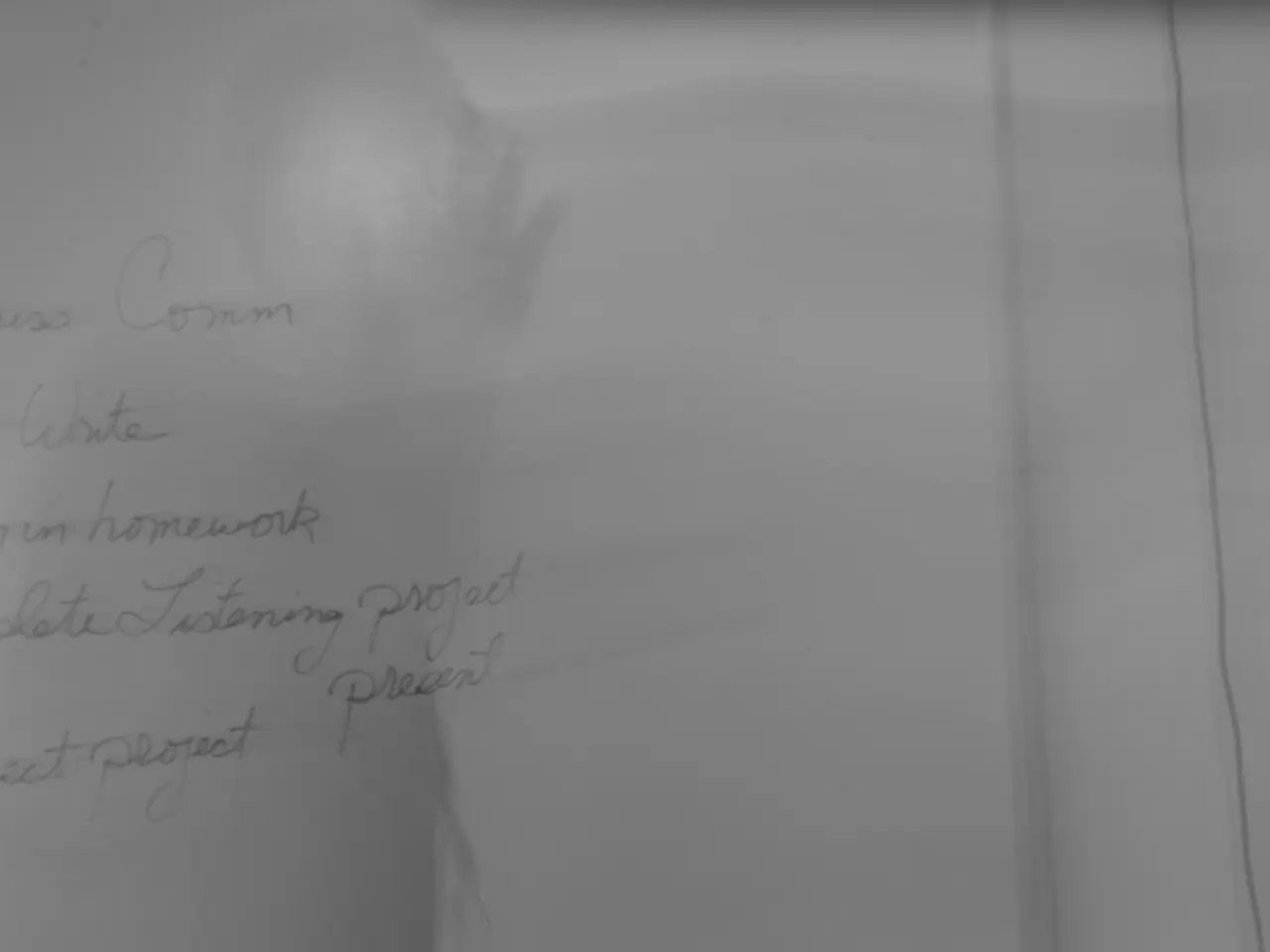Harnessing Small-Scale Solar Power Storage Across Thousands of Private Households in Thuringia
Thuringia observes mass deployment of solar energy storage facilities, numbering tens of thousands. - Multitudes of Solar Power Facilities Scattered Across Thuringia Region
In the informal and engaging tone of a tech-savvy blog, here's a breakdown on the massive deployment of solar power storage capacities in private households across Thuringia.
Thuringia, a shining beacon of green technology, witnessed an impressive integration of 29,182 small solar power storage units totaling a whopping 202,740 kWh capacity as of March 25, 20XX. This spectacular rollout of energy-packing batteries is expected to significantly contribute to the region's sustainability efforts, primarily within private residences.
Utilizing Small Storage Units for a Greener Tomorrow
"The road to a stable and sustainable future demands flexibility, and that's precisely where storage comes into play," emphasized Tilo Kummer, Thuringia's go-to Minister for the Environment. While mega power plants play a crucial role in this quest for flexibility, the future is all about maximizing the potential of many small and scattered storage units. Kummer envisions a future where these energy-storing minions are seamlessly integrated into regional control systems, market dynamics, or feature incentives for grid-friendly behavior.
Financing the Grid-Friendly Heroes
Enter the new federal government, eager to help out. In their collaboration accord, they pledged to foster solar energy in synergy with storage, transforming households into active players in their energy supply quests. They're auctioning off incentives for existing plant operators to behave in a grid-friendly manner. The fine print of the Renewable Energy Sources Act also has the renewable claim on negative prices and direct marketing under examination.
Grid-Friendly Battling Overload
The crux of the matter lies in the erratic behavior of these humble storage units. When the sun is shining brightest, these energy-sucking gadgets often charge up to the hilt, producing a virtual tsunami of electricity that threatens to overwhelm the grid when demand is at a minimum. If these energy tanks charged up during these hours and discharged their power during peak demand, they could bring our stressed-out grid back from the brink. But alas, many of these storage tanks are already straining at the seams in the early morning, leaving them incapable of relieving the system during the peak hours of the day.
Timing is Everything: Charge When the Grid Sprouts Wires, Discharge When the Going Gets Tough
A single feed-in tariff caters to all electricity inputs, regardless of whether the power is critical when urgently needed or piling up during periods of oversupply, causing prices to nosedive on the exchange. But imagine a scenario where these energy warriors charge the grid when it's least congested or discharge when it's in dire need of a power boost. Small-scale solar power storage units could literally stand between us and a meltdown if properly managed.
--
Advantages Aplenty: A Win-Win for Everyone
Not only would this strategy alleviate the relentless pressure on the grid, but it would also allow for a curb on network expansion in vulnerable areas. According to our trusty Minister, that's just the beginning of the advantages for small-scale solar power storage units. Kummer asserts that efficient deployment of these energy mavericks will pave the way for a more energy-independent future, potentially even reducing our dependence on fossil fuels.
--
The Road Ahead: Overcoming Barriers to Progress
While Germany continues to set the bar high for renewable energy adoption, it's clear that there's still work to be done. To truly reap the benefits of these small-scale solar power storage forces, regulatory reforms, and tailored financial incentives are necessary. With the right approach, we can keep surging ahead in our mission to create a sustainable energy future.
Insight: Germany is Paving the Way for Renewable Energy
Germany's commitment to renewable energy goes beyond Thuringia's residential solar power storage units. Various government policies, like incentives for innovative projects and the revision of outdated regulations, are fostering the growth of renewable energy across the country. The growing demand for energy storage solutions can benefit from advanced battery technology and government measures to stabilize the grid, making small solar power storage units a significant piece in the green puzzle. Nevertheless, challenges such as lengthy approval procedures and fluctuating policies must be addressed to see more substantive progress in this field.
- The impressive integration of 29,182 small solar power storage units in Thuringia totals a whopping 202,740 kWh capacity, a move that supports the region's sustainability efforts and primarily benefits private residences.
- Tilo Kummer, Thuringia's Minister for the Environment, stresses the importance of energy storage in achieving a sustainable future, envisioning small storage units as integral components of regional control systems, market dynamics, or incentive structures for grid-friendly behavior.
- The federal government is backing these green initiatives by auctioning incentives for existing plant operators to behave in a grid-friendly manner, with the Renewable Energy Sources Act also considering the renewable claim on negative prices and direct marketing.
- However, these small solar power storage units face a challenge in managing their energy output, often charging at peak sunlight hours when grid demands are low, potentially causing overloads during periods of low demand.
- An efficient strategy would involve charging the grid when it's least congested and discharging during peak demand, preventing overloads and potentially averting a grid meltdown.
- With the right regulatory reforms and financial incentives, the efficient deployment of these energy-saving minions can lead to a more energy-independent future, reducing our dependence on fossil fuels and heralding a significant step towards a sustainable energy future, a cause Germany continues to champion.








